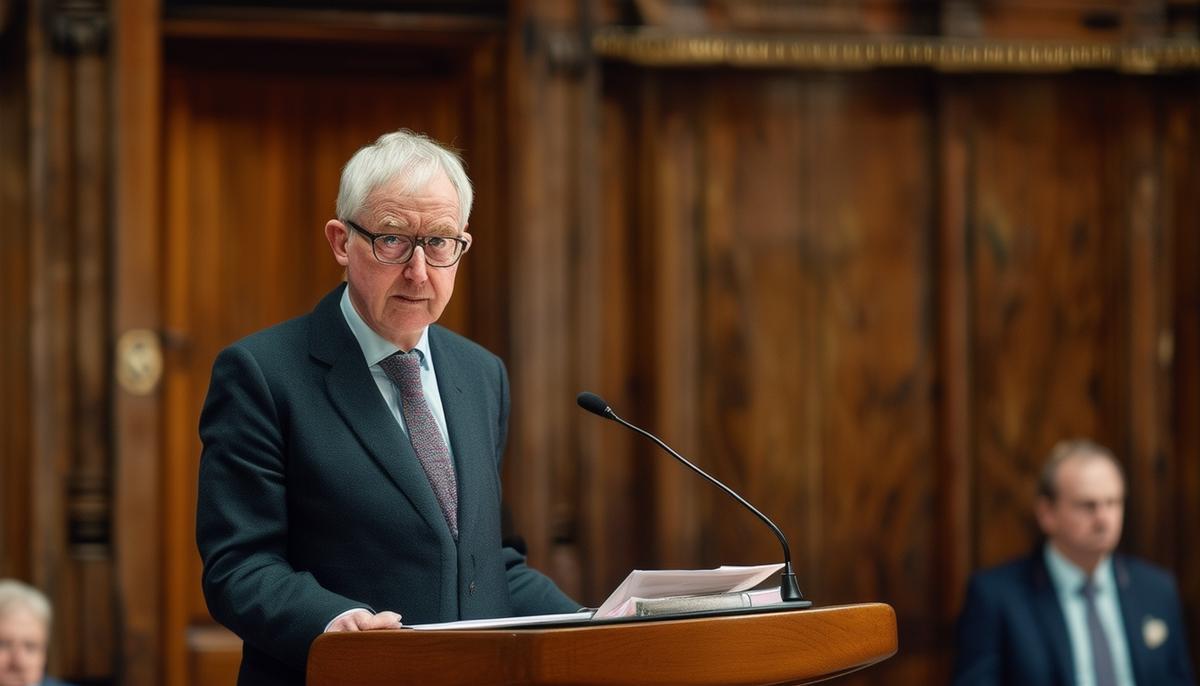Whitbread climbed nearly 4% after unveiling first-quarter results. Sales rose 1% to £739 million, pleasing investors. Meanwhile, Ashtead Group finds itself dropping almost 4% due to a downgraded growth forecast.
The FTSE 100 is up nearly 0.4%, while the FTSE 250 has increased just over 0.5%. Everyone seems to be holding their breath, awaiting the May inflation data tomorrow and the Bank of England's rate decision on Thursday.
On the currency front, £1 fetches $1.27 or €1.18, not much change from Monday. Brent crude inches upwards, pricing around $84 a barrel. Gold is up slightly, with an ounce costing $2,321.99.
London has reclaimed its title as Europe's largest stock exchange, beating Paris, where recent political upheaval caused market turmoil. The UK's market now stands at a collective worth of $3.18 trillion, surpassing France's $3.13 trillion.
Lifetime ISA holders aren't thrilled either, with 185,400 savers penalized for "unauthorized" withdrawals between 2018 and 2023. Rising home prices breach the £450,000 cap, leading to an uptick in penalties. It feels like being fined for getting a promotion!

The hot topic is tomorrow's inflation data release and what it could mean for the Bank of England's interest rate decision on Thursday. Most economists believe inflation might finally hit the coveted 2% target, unseen since 2021. Sounds great, right? Well, not so fast.
The skeptics argue that even if inflation meets the target, a rate cut isn't necessarily in the cards. Only 9% of the market expects the Bank of England to cut rates this week, with the remaining consensus hinging on more long-term inflation metrics. Policymakers remain jittery about rising wage growth, currently at a stubborn 6% annually, which could keep upward pressure on prices.
The Bank might not want to play its hand too early, especially with the looming uncertainties of a general election. Acting now could seem politically motivated, and who wants to stir that pot? So for those dreaming of a rate cut and relief for mortgage holders, it might be a case of "wait and see."
Fiona Cincotta, a senior analyst at City Index, senses cautious optimism among investors. She notes that while an imminent rate cut is off the table for most, hitting the inflation target paves the way for potential action in August. Similarly, a lot depends on what's lurking in the economic data later in the year.
Looking at market predictions, stocks have barely moved, reflecting cautious optimism. The FTSE 100 and FTSE 250 inch upwards, while currency and commodity markets hold steady, all eyes fixed on the unfolding economic drama.

The National Health Service (NHS) isn't just in crisis; it's in a tailspin. Heads up – more than 40% of NHS Trusts reported operating deficits in 2023, compared to less than 20% the prior year. What does that mean for patient care? Essentially, hospitals prioritize balancing books over much-needed improvements.
As the renowned Great Ormond Street Hospital grapples with higher-than-planned expenses on salaries and pricier drugs, it's a microcosm of the broader financial distress. Central London's prestigious children's hospital isn't alone. Many NHS Trusts are in red territory, facing potential quality dips in care. Waiting lists remain problematic, with 33% of patients waiting over 18 weeks.
"The elephant in the room is how these improvements will be funded," says Jennifer Dixon, Chief Executive Officer of The Health Foundation. No kidding. As both the Conservatives and Labour ramp up their healthcare promises ahead of the election, one glaring question remains: Who foots the bill?
Deficits trigger the need for government loans to keep hospitals operational, but at a cost. This isn't just about delaying a new paint job for the corridors; it's a question of having enough staff and functioning equipment. Remember those Victorian facilities with crumbling infrastructure? They're part of the problem too.
Consider the Blackpool Teaching Hospitals NHS Foundation Trust. Ending last fiscal year £15 million in the red, its declining financial health coincides with serious staffing concerns in its maternity services.
On the brighter side, some trusts have clawed their way out. Mersey Care NHS Foundation Trust flipped from a deficit to a surplus by boosting private income. Yet, these pockets of success barely dent the systemic issue.
The financial crunch isn't just affecting hospitals; it's reshaping electoral priorities. Polls suggest a Labour surge, but whoever wins faces a mammoth task. Balancing immediate care standards with long-term financial stability isn't easy, and voters are keenly aware.
The next government needs a robust plan to lift the NHS from its financial fog. Until then, hospitals, staff, and patients hang in a precarious balance, literally paying the price of delayed action.

- Bevan G, Dixon J. 2023 to be remembered as annus horribilis for NHS finances? BMJ (Clinical research ed.). 2023;382:p274. doi:10.1136/bmj.p274
- Millar R. Over 40% of NHS Trusts report operating deficits. Financial Times. 2023.
- Torjesen I. Funding crisis in England's NHS deepens. BMJ. 2023;381:p1369. doi:10.1136/bmj.p1369
Leave a Reply